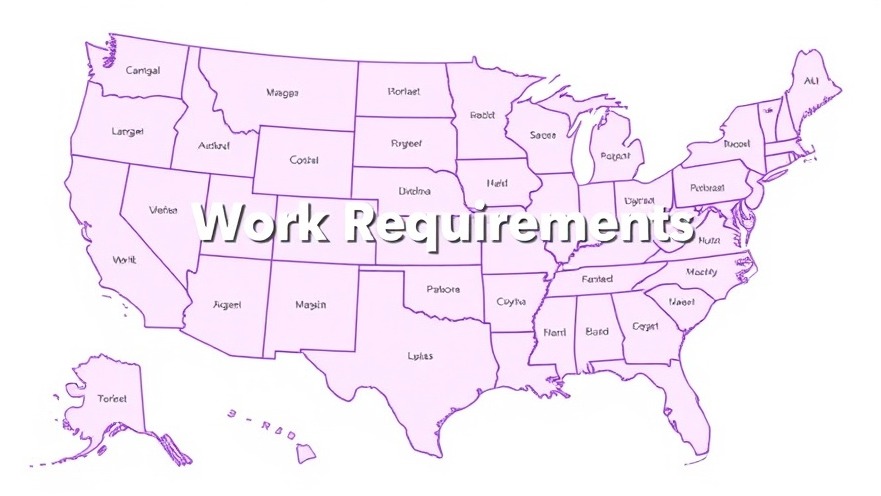
Understanding the Complexities of Medicaid Work Requirements
The recent implementation of Medicaid work requirements has stirred significant debate about its implications for millions of individuals and families relying on this essential health service. Under new legislation, adults enrolled in Medicaid must engage in work-related activities for at least 80 hours per month, unless they qualify for specified exemptions, such as residing in high unemployment areas.
The High Unemployment Hardship Exception Explained
As part of the newly enacted legislation aimed at modifying Medicaid eligibility, states can seek exemptions for individuals living in counties with high unemployment rates. These exceptions are aimed at areas where job availability is limited, thereby acknowledging the economic disparities that hinder employment opportunities. According to data analyzed, only about 7% of expansion counties currently qualify, affecting roughly 1.4 million enrollees.
Potential Impacts on Health and Wellness
The proposed requirements could significantly impact health care access for many people, especially in regions with chronic economic struggles. Those who fail to meet work requirements or become ineligible due to newly imposed restrictions risk losing essential healthcare services. Consequently, this may exacerbate existing health disparities, particularly for low-income populations who already face barriers in accessing care.
The Urban-Rural Divide
Interestingly, the analysis reveals a stark urban-rural divide: while a majority of the counties meeting the high unemployment criteria are rural, a large proportion of those who could be exempt reside in urban centers. This paradox highlights the complexities underlying Medicaid expansion and how it intersects with broader socio-economic trends. The concentration of potential exemptions in urban areas such as California and New York suggests that states may navigate these requirements differently, leading to varied outcomes.
Long-Term Predictions: Economic Recovery and Future Health Policies
As economic conditions fluctuate, particularly in light of shifts in employment rates, the potential number of Medicaid enrollees qualifying for exemptions may rise. Experts warn that should the labor market tighten further, an increased number of individuals may need to turn to safety net programs like Medicaid, reinforcing the importance of policy flexibility.
Counterarguments from Health Advocates
Health policy analysts argue against work requirements by emphasizing that many enrollees are already working or possess barriers that hinder compliance with these new regulations. Data from states that have implemented similar policies previously indicate that the perceived benefits of increased employment do not manifest in reality; instead, they lead to increased medical debt and delayed care for those at risk through coverage loss.
Actionable Insights: Navigating Health Coverage in Uncertain Times
Given the changing landscape of Medicaid policy, it is vital for health professionals and lawmakers to advocate for continued access to care. Engaging in community dialogues about the implications of work requirements can empower individuals to understand their rights and options. Health advocates should also work to ensure that exemptions are granted fairly and effectively in underrepresented areas.
Conclusion: A Call for Adaptive Health Policies
The current landscape of Medicaid work requirements necessitates a critical evaluation of healthcare policies to ensure they promote health equity rather than creating unnecessary barriers. As the government implements these policies, it is crucial for both professionals and families to stay informed and engaged.
 Add Row
Add Row  Add
Add 




Write A Comment